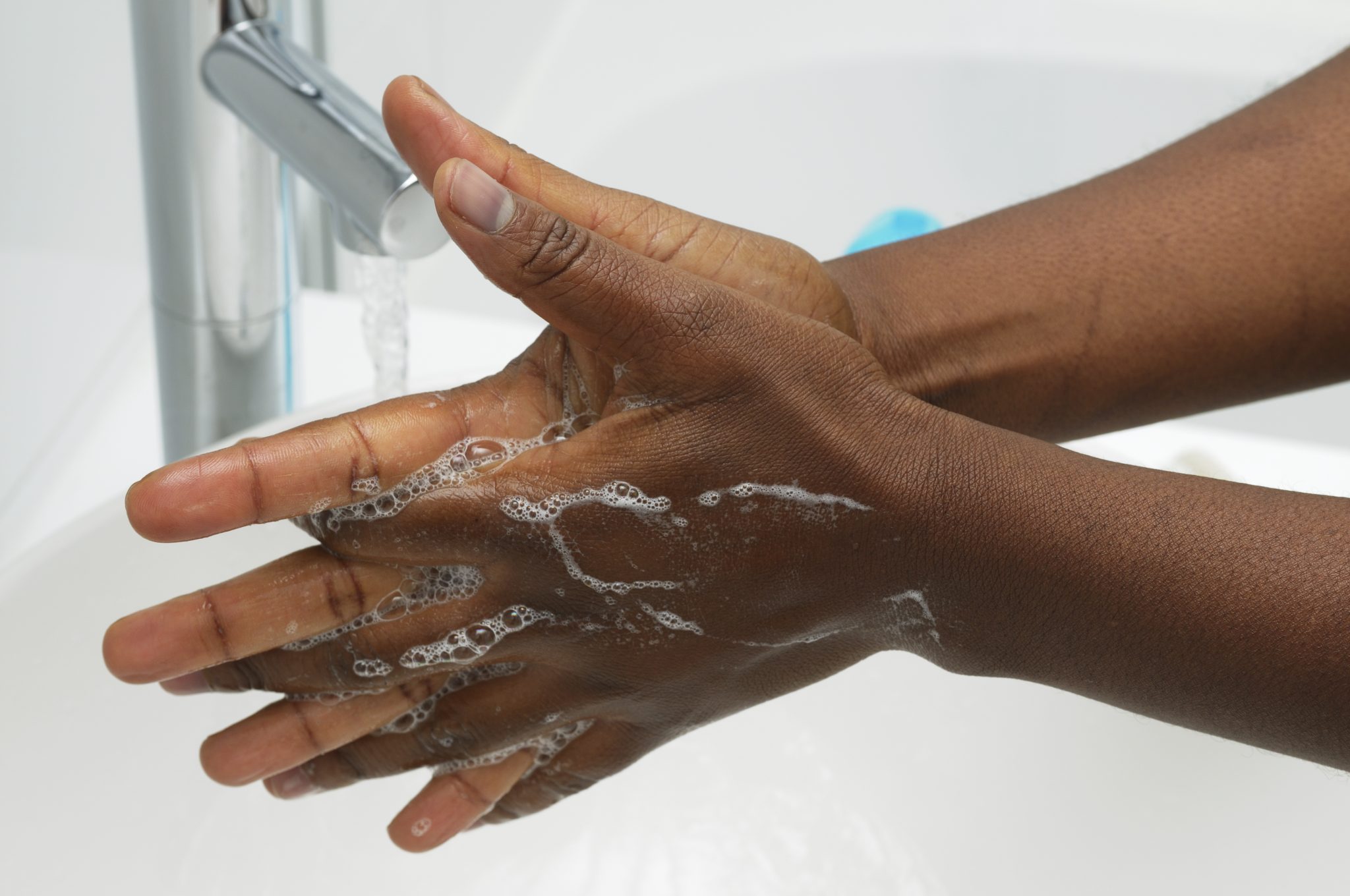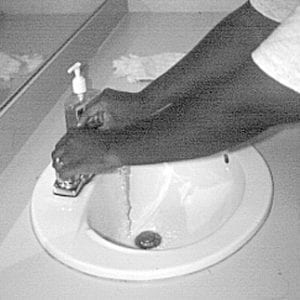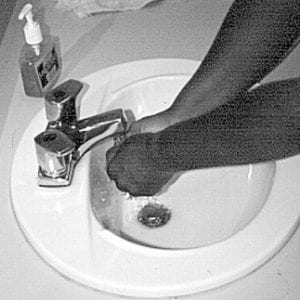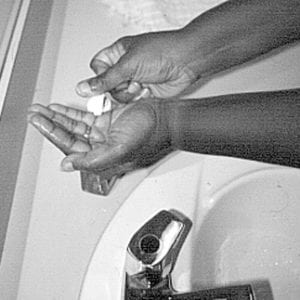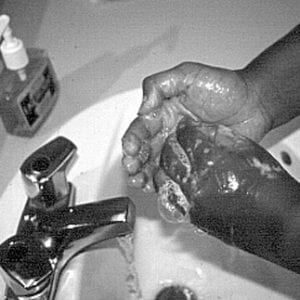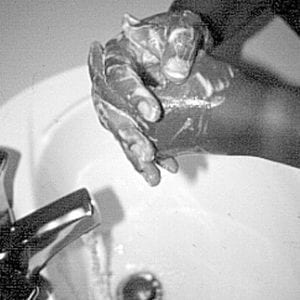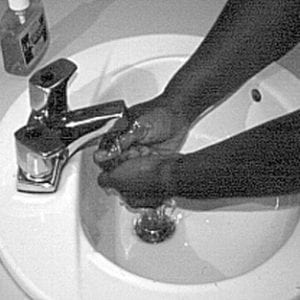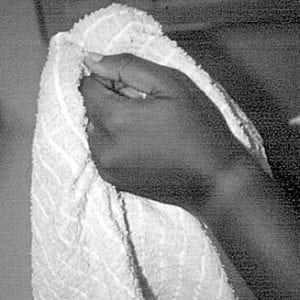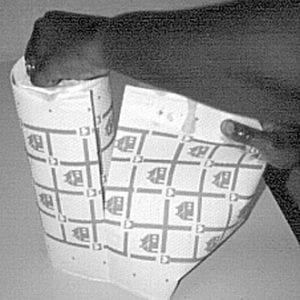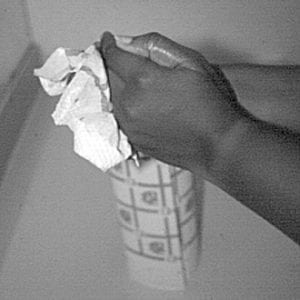Food Safety

Keeping you and your food safe from harmful bacteria can be as simple as washing your hands. But you need to know when to wash and how to do it properly.
Wash Your Hands.
Do you remember your mother telling you to wash your hands when you were young? It is still good advice. We know that our hands can carry harmful bacteria. Think about all the things you touch throughout the day:
- food, including raw meat
- tables, desks, and other countertops
- pets
- cars
- children
- dirty diapers
- runny noses
- cigarettes
- toilet seats and handles
- doorknobs
Bacteria are everywhere—this includes on your body. Bacteria is spread whenever you touch your hair, nose, and face. It is therefore important to wash your hands frequently.
When Is It Important to Wash Your Hands?
Always wash your hands after these activities:
- using the bathroom
- handling raw foods such as meats, poultry, fruits, and vegetables
- changing a baby’s diaper
- sneezing and coughing
Using the Bathroom
Washing your hands after using the bathroom seems simple enough, but few people realize how important
it is. Many types of bacteria live in the feces of animals and humans. This includes some of the most deadly bacteria, such as E. coli 0157:H7. Some people can carry the organism without becoming ill themselves. But when they pass the organism to someone else, that person can become quite ill. The best way to remove these bacteria is by washing your hands.
Handling Raw Foods
You probably realize the need to wash your hands after handling raw meats and poultry, but what about after handling raw fruits and vegetables? In addition to pesticides, microorganisms can be found on the surface of fresh produce. Bacteria are everywhere in the air and in the soil; it is easy for these bacteria to get on fruits and vegetables.
One major way bacteria get on fruits and vegetables is from animals in the fields. Deer, rabbits, and even rats and mice come to eat the food, and they leave behind their feces. These feces are deposited in the soil. When it rains, they are splashed onto the produce. When you handle the raw foods, your hands can become contaminated.
Changing a Baby’s Diaper
As sweet as babies are, they still can have bacteria in their feces. Always wash your hands after changing a diaper. Another good practice is to wipe off your hands with a damp paper towel after discarding the dirty diaper and before putting on the clean one. This will help to prevent cross contamination of the bacteria in the diaper.
Sneezing and Coughing
Have you ever thought about why your nose runs? Sometimes it is caused by an allergic reaction and bacteria are not involved. If you have a cold, however, it is caused by a viral infection. Whenever you wipe your nose with your hands, you can spread the virus to whatever you touch.
Always wash your hands before these activities:
- eating or drinking
- handling a baby
- preparing food
Eating or Drinking
The skin has many types of bacteria living on it that we cannot see. They are so small that millions can be on our hands without our knowing it and can easily be passed to the food we prepare.
Handling a Baby
Because babies are so small, they are the most susceptible to bacterial infections. For this reason, you should wash your hands before handling a baby. It is especially important to wash your hands before you handle any food or bottles for babies.
Preparing Food
We always think about washing our hands after handling food, but what about before? Some foods, such as canned foods, are free from bacteria before you eat them. Touching them with dirty hands can cause contamination.
Where Should You Wash Your Hands?
Before you begin any food preparation, wash your hands in a sink where food is not being prepared. Never use the kitchen sink to wash your hands after doing something outside or in another area of the house, such as the bathroom. The kitchen sink can become contaminated and the bacteria can be introduced to foods, such as lettuce and tomatoes, that may be placed in the sink. Make it a practice to wash your hands in the bathroom sink before starting the cooking process.
During food preparation, your hands can become soiled and wet. Always wash them when they become soiled and especially after handling raw meat or poultry. Just be sure that any food you are prepping in the sink has first been removed. Dry your hands with a towel that is used for hand drying only. Do not use the same towel that you use to dry dishes or the countertop. A damp towel may contain bacteria that can grow to millions after several hours.
How Should You Wash Your Hands?
- 1. Turn on the water.
- 2. Wet your hands.
- 3. Get the soap.
- 4. Work up a good lather.
- 5. Work the lather all over your hands. Rub and lather for at least 20 seconds, making sure to clean under your fingernails.
- 6. If you have a nail brush, scrub your nails. If not, cup your hands when they are fully lathered and place your fingertips in the cup of lather in your palm and scrub. Repeat with both hands.
- 7. Dry your hands on a clean towel. A dirty towel will only get your clean hands dirty again.
- 8. You may also use a clean paper towel.
- 9. Dry your hands with the paper towel.
 Revised by Janet Johnson, Regional Extension Agent, Auburn University. Written by Jean Weese, Visiting Professor and former Extension Specialist, and Janet Johnson.
Revised by Janet Johnson, Regional Extension Agent, Auburn University. Written by Jean Weese, Visiting Professor and former Extension Specialist, and Janet Johnson.
Reviewed March 2022, Food Safety: It’s in Your Hands!, HE-0610

